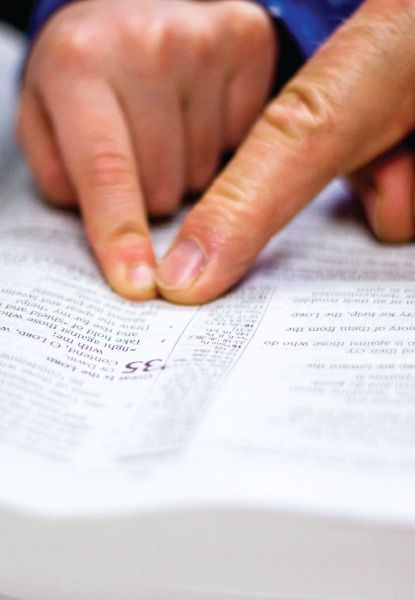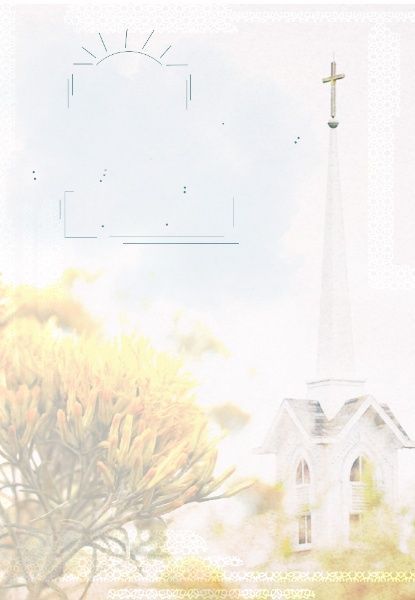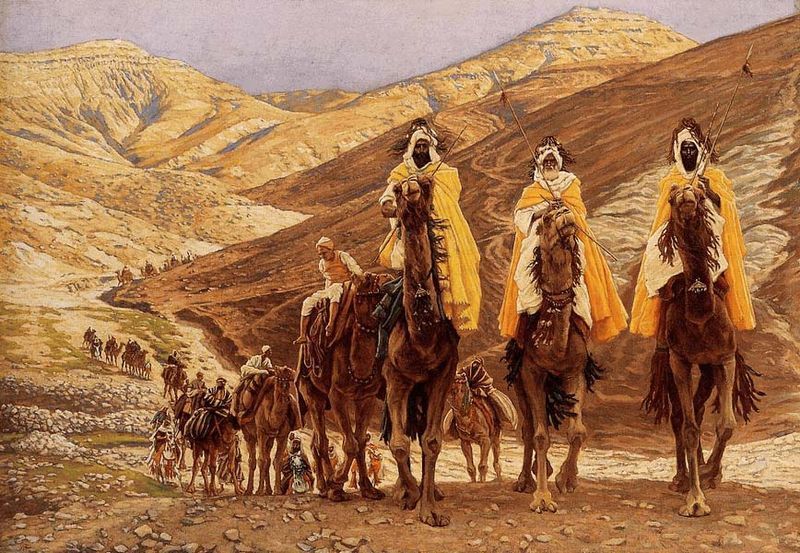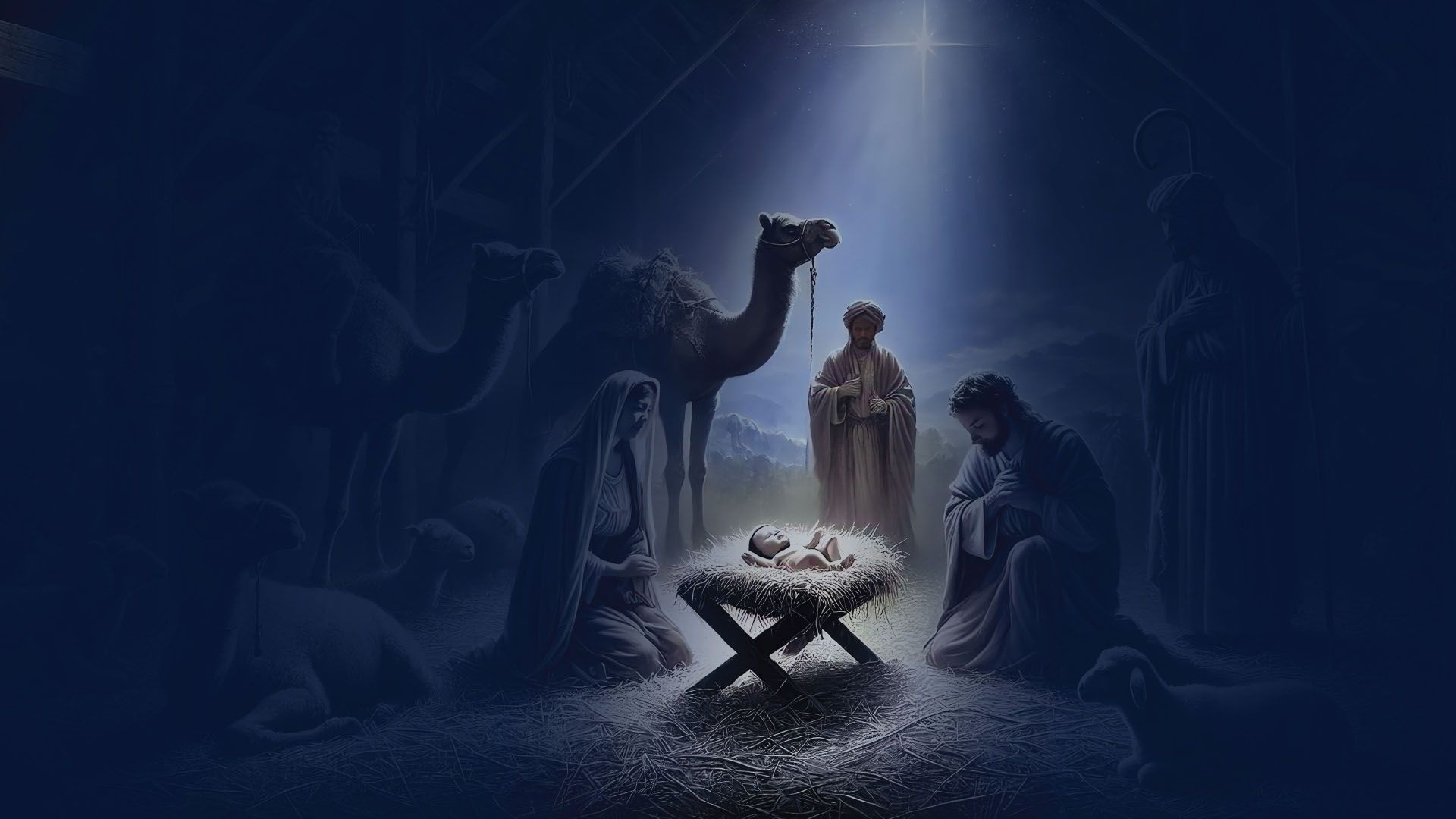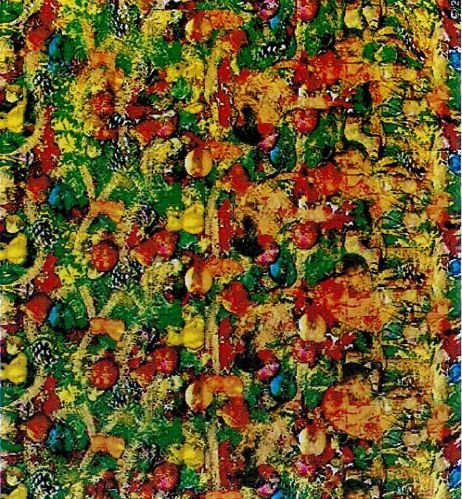A sermon for Earth Day Sunday.

Psalm 65: 5-13
Romans 8: 18-25
April 21, 2024
Rev. Dr. Galen E. Russell III
“We know that the whole creation has been groaning in labor pains until now; and not only the creation, but we ourselves...”
Prayer: Please stir our hearts and minds, O God, so that we may see everything our earth offers as gifts for us to use and share wisely. In Christ’s name we pray, Amen.
Today is the Sunday before Earth Day, which is tomorrow, and this scene from Dances With Wolves kept coming back to my mind. By the way, this is a really good movie and takes place during the Civil War era. The scene is when Lt. John Dunbar finds himself as the only soldier at an abandoned fort on the extreme edge of the frontier. He needs fresh, clean drinking water, and thankfully, there is a water hole. But, the water is stagnant, contaminated, and foul because of a large, decaying horse carcass stuck in the water along with garbage that the soldiers before him left. Kevin Costner, who stars as Lt. Dunbar, has to haul the dead horse out of the water, and burn it, along with the junk left by the careless soldiers who didn’t think twice about polluting the water. Only after he took steps forward to clean out the waterhole would the water be restored and that small area of the earth be renewed and habitable and healthy again.
Even though somewhat gruesome, I think that little scene reflects the bigger story of how human beings have to take steps forward to care for the well-being of our planet. Like Lt. Dunbar had to do in order for the water to become clean, fresh, and good.
But it also illustrates, I think, humanity’s reckless inattentiveness to the earth and its resources. Privileged people will forever and a day take for granted that there will always be more resources available to us. More waterholes when we need it. Always clean water somewhere. So there’s no big push to tend to the water hole we’ve got. And that ‘take it for granted’ attitude actually takes us a step backward away from healthy best practices in caring for the earth.
Spiritually speaking, it is the same. Paul’s words in Romans 8 are all about how God’s ways had become contaminated by entropy. Entropy, philosophically speaking, basically says that all things on the earth are born or come into existence. Initially they grow into vitality and reach a peak. And then for the rest of their existence, it’s a long process of decay. And then all things die. This is the way of the physical creation. The way of flesh. Paul says that this entropy is the bondage that creation has. And it doesn’t need God. Or faith. It’s just the way life is.
But, Paul says that is not all there is to our existence. Entropy contaminates God’s presence, yes. But people can take two steps forward on faith. And anyone who does that will find that the Spirit of Christ lives in them, making them children of God. And children of God are led by the Spirit of God, not contaminated by spiritual entropy anymore. We have hope for a future. The past is over and done. New life has begun. Two steps forward.
But, there’s a problem even with the children of God who have the Spirit of Christ. Because, you know, some Christians say that the children of God are supposedly focused on the great hereafter, on eternal life. On God’s salvation. Escaping from earth and getting into heaven. Paul even says it himself: “I consider that the sufferings of this present time are not worth comparing with the glory about to be revealed to us.”
And so, it becomes easy to take for granted what we have on earth without cultivating a deep attention to the earth, its seas, soil, and its resources. Some even say that Christianity licenses the unbridled exploitation of our planet and its resources. That take is a step backwards.
What I think Paul truly is saying here is that the children of God are the ones to help care for this planet. We are the ones that the whole creation has been groaning in labor pains for. We are the ones to help this earth produce healthy and habitable environments. We are the ones to live out the Bible’s commands for stewardship of the earth’s resources. God gave humanity dominion over all the earth (Gen. 1). Which I think means we’re entrusted by God with the care of this planet . If we embrace our role as earth’s caretakers, that’s taking two steps forward, I think.
So as caretakers, I began to wonder: why are our culture and some of our politicians and more conservatively minded brothers and sisters slow to accept the fact that our earth is changing? That’s taking a step backward, it seems to me.
I was watching NOVA about earth’s origins. Did you know that where New York City is now there used to be mountains as big or even bigger than the Rocky Mountains? Who knew? Over the millions of years, erosion wore down those mountains and the movements of tectonic plates changed the landscape. Did you know that the Rocky Mountains we see today are really a 2nd or 3rd version of themselves? Worn down by erosion, they rise again by tectonic movement.
And our climate is changing and always has. Fossilized tropical palm tree fronds can be found in Alaska. Go figure.
So, yes, our climate is changing. It always has. But humanity’s presence and often insensitive use of our resources and the ‘take it for granted’ attitude actually accelerates this change, despite what our conservatively minded folks say. Not to mention that focus on profit over sustainability and countries making war also aids this acceleration. And this rapid acceleration affects everything on earth.
Because everything ecological is interconnected together. What we do as a mass of humanity affects all the climate zones of the earth. Our gaseous emissions raise our air and sea temperatures. Which causes fiercer storms and melting ice caps at the poles. Which raises sea levels at our shores and displaces people, which becomes an issue of justice. That’s just a snapshot of the interconnectedness we have with the earth.
However, let us remember that we serve a God who adopts us and makes us children of God which can help us take two steps forward. And just the way we may groan in our inner spirit awaiting with hope that the power of God will transform us and help us give birth to a new version of our selves, so our earth groans as it awaits our efforts to take steps forward to help it renew itself.
There are literally hundreds of ways to take two steps forward, but I want to suggest these two ideas as maybe a foundation for best practices going forward. The first is to adopt an awareness of sacred mutuality. Meaning that we coexist with other people and other species and other forms of life on this planet, all of which is sacred. We are neighbors to each other. Adopting a sense of mutuality should motivate our ethics and our actions, our sense of justice and equity for those marginalized, and the sooner the better. That’s taking two steps forward. It’s better for future generations.
And secondly, as I’ve suggested before, I suggest we work on how we can aspire to be the best people we can be, helping God create a better healthy, renewable world, not so much for our benefit, but for our children’s benefit. For the future generations of tomorrow. Because our aspirations today are built on the aspirations of our ancestors. And theirs before them. So, our children and future generations will continue to aspire for the best world they can have, but they build on what we built for them in our desire for a better world. Two steps forward for our kids. One step back to recognize the shoulders we stand on. Those who’ve gone before us.
These two ideas are alluded to in our Creation Justice Covenant which we adopted as a church in November of 2018. I’d like to close my remarks by inviting us as one voice to affirm our faith and recite our Creation Justice Covenant:
We believe in the sacred story of origin that speaks of our common connection to God, to each other, to all of creation, and to the world in which we live, work and play;
We understand that it is our responsibility, as individuals and as a church, to not only care for but also to help heal and restore creation. We desire that this deeply felt commitment be reflected, with an urgent sense of calling, in all aspects of our congregation’s life and that we lead, by example, beyond the walls of our church into our community and our world,
We recognize that the impacts of environmental exploitation, degradation, and global climate change disproportionately impact historically marginalized communities, especially people of color, and that we have a calling and a responsibility, as human beings, to work on behalf of all those who face issues of social injustice and oppression.
Amen.

